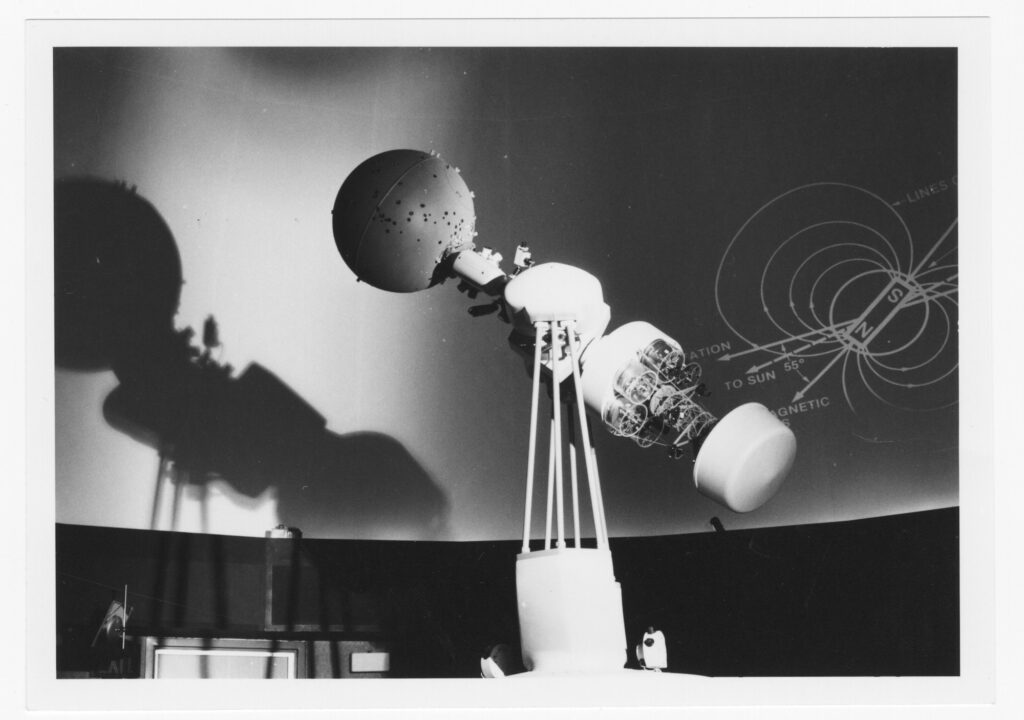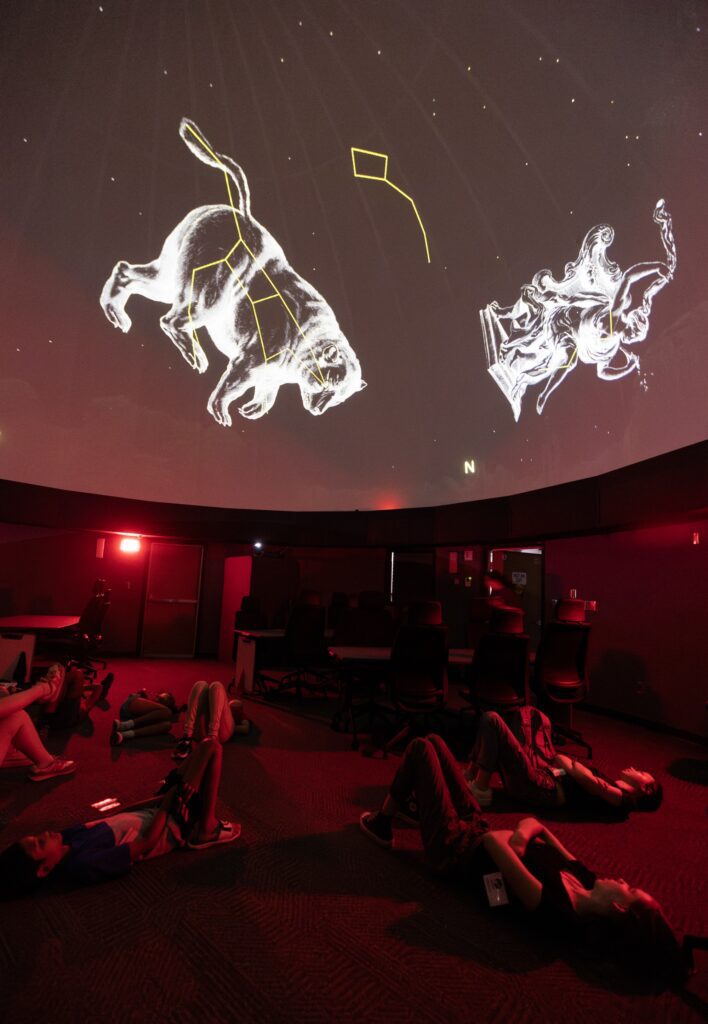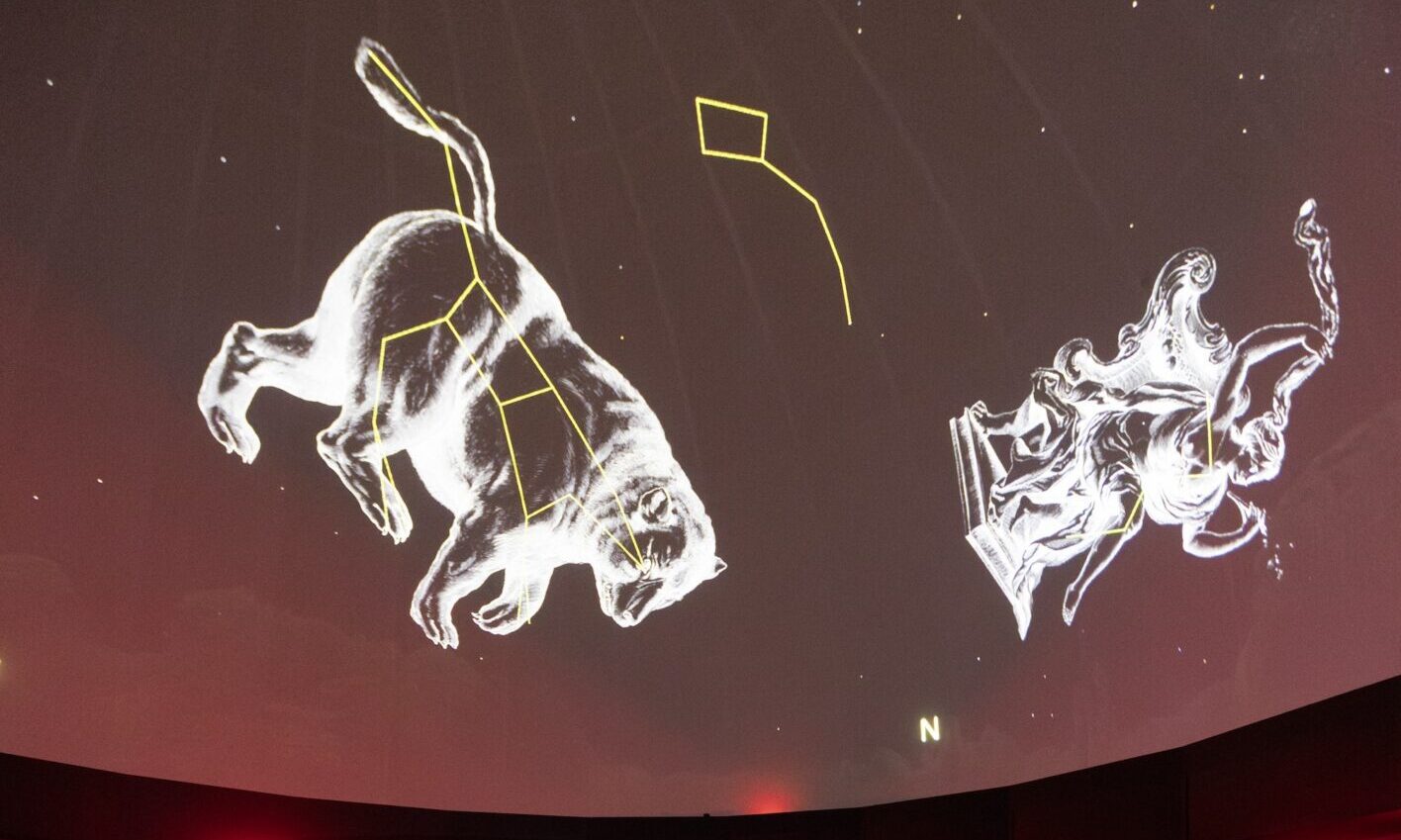by Amanda Craig
Do you remember the awe-inspiring experience of first learning about space, gazing up at the stars and imagining the vast mysteries of the universe? Perhaps it was during a school trip or a family visit to a planetarium, where celestial wonders unfolded on a domed ceiling while an expert guided you through constellations, planets and solar eclipses.

The Mallory Kountze Planetarium, located in the heart of the Durham Science Center at UNO, has provided that experience for visitors since it opened in 1987. For decades, it has captivated visitors with its immersive shows, yet remained mostly unchanged with much of the same look and technology.
However, this fall marks an exciting transformation for the planetarium. Thanks to privately funded renovations, visitors can anticipate a vastly enhanced experience. These upgrades include state-of-the-art equipment, interactive programming and revamped interiors featuring modular tables and seating.
Krista Testin, afterschool & planetarium coordinator for UNO’s STEM TRAIL Center since 2013, has been instrumental in this evolution. She passionately orchestrates shows and curates educational experiences for diverse audiences, from school children to university students and the public alike.
“All planetariums are important. They’re a gateway to STEM education,” said Testin. “They keep people involved and bring families together over shared experiences and memories of earlier visits. It is a lot of nostalgia, but it also keeps that interest and passion for science and science education alive.”
Testin is particularly enthusiastic about the new capabilities brought by Digitalis software, recently integrated into the planetarium’s operations. During a demonstration, she effortlessly navigates a tablet, projecting the night sky and seamlessly transitioning to virtual space travel among planets. This innovative system allows her to tailor shows in real-time, engaging with audiences and adapting content based on their interests.
The planetarium’s enhanced features also include a portable dome, funded by the ONE STEM community project. This mobile setup will democratize access to astronomy education, allowing outreach to communities unable to visit the Durham Science Center.
“You can easily use the tablet to run the condensed version of a show in the portable planetarium. The portable planetarium will be used, and we can bring the show to them,” she said.
Beyond astronomy, the planetarium offers versatile programming covering topics like DNA, climate studies and the arts. With advanced notice, Testin can craft customized shows for college classes or special events, enhancing educational outreach across disciplines.
In preparation for the planetarium reopening to the public on August 23, it welcomes a cohort of four student interns trained in the new technology. They will help continue pushing the boundaries of cosmic exploration, inspiring visitors to journey through the wonders of space and beyond.
LEARN MORE and plan your visit.





